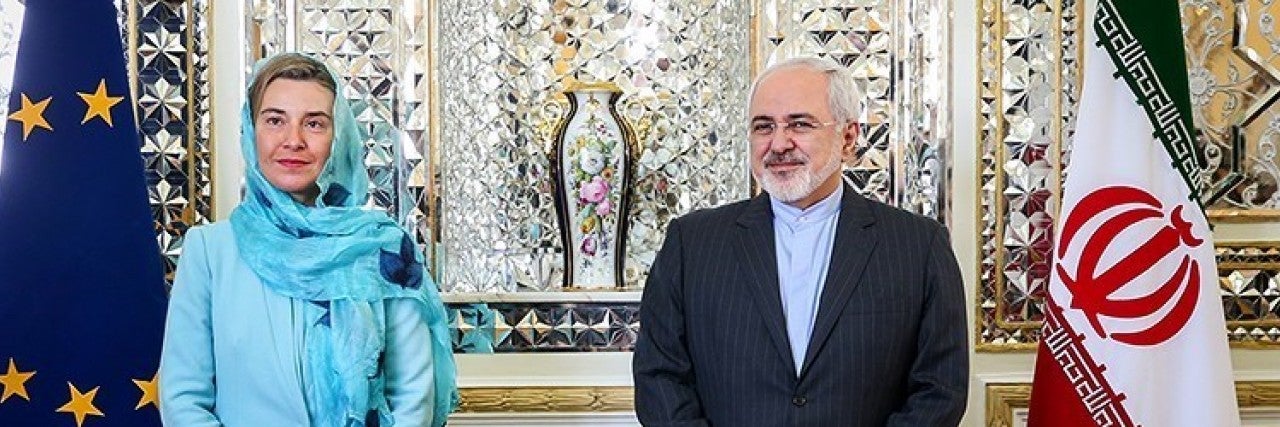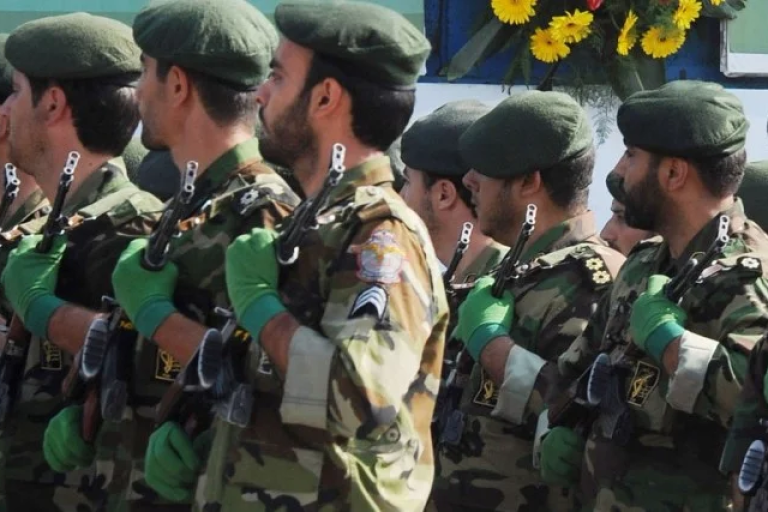August 8, 2018 — Jerusalem, Israel
By Eran Lerman
It does not often happen that a political argument can be settled mathematically. Still, in the long-running debate as to the willingness of the Iranian people to rally around the flag and support the regime at times of duress, at least one numerically verifiable indicator is in. The free fall of the Rial against the dollar, the result of large numbers voting with their feet and rushing to acquire hard currency to be put "under the mattress," tells us how much confidence the Iranian middle classes have in the capacity of their government to deal with the crisis, find European and other players to do business with, and ride out the gathering economic storm.
Moreover, the signs of dissatisfaction are spreading widely, beyond Northern Tehran and the upper classes. The willingness of the great masses of the poorer neighborhoods of South Tehran has long depended on the wasteful system of subsidies which secured at least the basic needs of life. As the capacity of the regime to provide these mainstays erodes, as billions continue to pour into wars, directly or by proxy, in Syria and Yemen, and into arming Hezbollah and Hamas, there are growing signs of unrest. This has not yet reached the scale of the eruption late last year, but the potential is there and may grow in the coming weeks and months as the people lose faith in the Supreme Leader's idea of a "revolutionary economy."
Europe’s Choices
They have reason to be worried. At the political level, European leaders eager to preserve the JCPOA and avoid tough decisions at this time are willing to promise Iran that they would try to mitigate the effect of American actions. But the board members of Total, BP and many other corporations which already cut down their commitments in Iran are not there to serve their nation's diplomatic needs. They are there to ensure that their shareholders are well served, in which case there is not much to commend doing business with Iran over doing business with America. Hence the necessary blunt edge of the U.S. Administration's messaging on the subject, meant to leave no one in any doubt as to what would be the cost for those who make the wrong choice.
As the effects intensify, so would the ambiguity from Tehran's point of view. Is U.S. policy designed to bring about regime change, through extensive economic pressure and other means of subversion? Or is this all part of the "foreplay" that would lead to a meeting and a compromise, as happened with North Korea? In a sense, this ambiguity – further fueled, in his unique way, by President Trump's tweets about WORLD PEACE and the prospect of negotiations – serve the U.S. immediate-term interest: keep the Iranians guessing, while the pressure intensifies, as to their options in the face of American policy (not surprisingly, the Supreme Leader rejects out of hand the offer to meet, which for him is an invitation to negotiate from a position of weakness).
Iranian Threats
A sure sign that Iran is indeed worried has been the burst of threats to block the Strait of Hormuz to all traffic, if Iran finds herself out of the global oil market. The threat was presumably underlined by the Iranian navy's exercise this week. The actual capacity of the Iranian navy to do so, in the face of determined U.S. action to keep the sea lanes open, is rather limited. It was put to the test back in 1989 and found wanting. The heated language does indicate, however, that the period ahead may be fraught with danger, as Iran's desperate plight might lead to equally desperate action. Developments will not be linear. Ultimately, logic should lead Iran back to the negotiating table. But the transition from defiance to defeat may be irregular and violent, both in the Gulf area and in other parts of the region where Iran has proxies and agents.
Israel’s Options
For Israel, this poses the very real danger of an eruption in the North, where Iran has a direct presence in Syria as well as a powerful and fully-owned proxy, Hezbollah, based in Lebanon. Violence could serve to prove to the U.S. that the present course is dangerous, to exact a price from Israel, and to scare others in the international arena into helping Iran's cause. This type of scenario has been on the mind of Israeli decision makers, who in recent weeks made it clear more than once that they prefer to keep their powder dry vs. Hamas in Gaza, while facing the far more dangerous risk of Hezbollah being ordered to take the plunge and provoke Israel.
Still, the risk, which the IDF is well-prepared to face, is worth taking. Sooner or later, the futility of their confrontational approach (which their own people are now questioning) will force Iran's leaders to reconsider. At that point, it would be useful to be open, as President Trump already said, to the prospect of direct negotiations, and, at the same time, be acutely wary of Iranian negotiating tactics and attempts to gain time and confuse the subject.
Only a firm, hard headed set of specific demands, particularly on reversing the "sunset clauses" of the JCPOA and ensuring that Iran will never obtain enough fissile material for the bomb, will actually produce "a better deal."
Eran Lerman is the former deputy for foreign policy and international affairs at the National Security Council in the Israeli Prime Minister's Office. Prior to that, he served as director of AJC Jerusalem.


